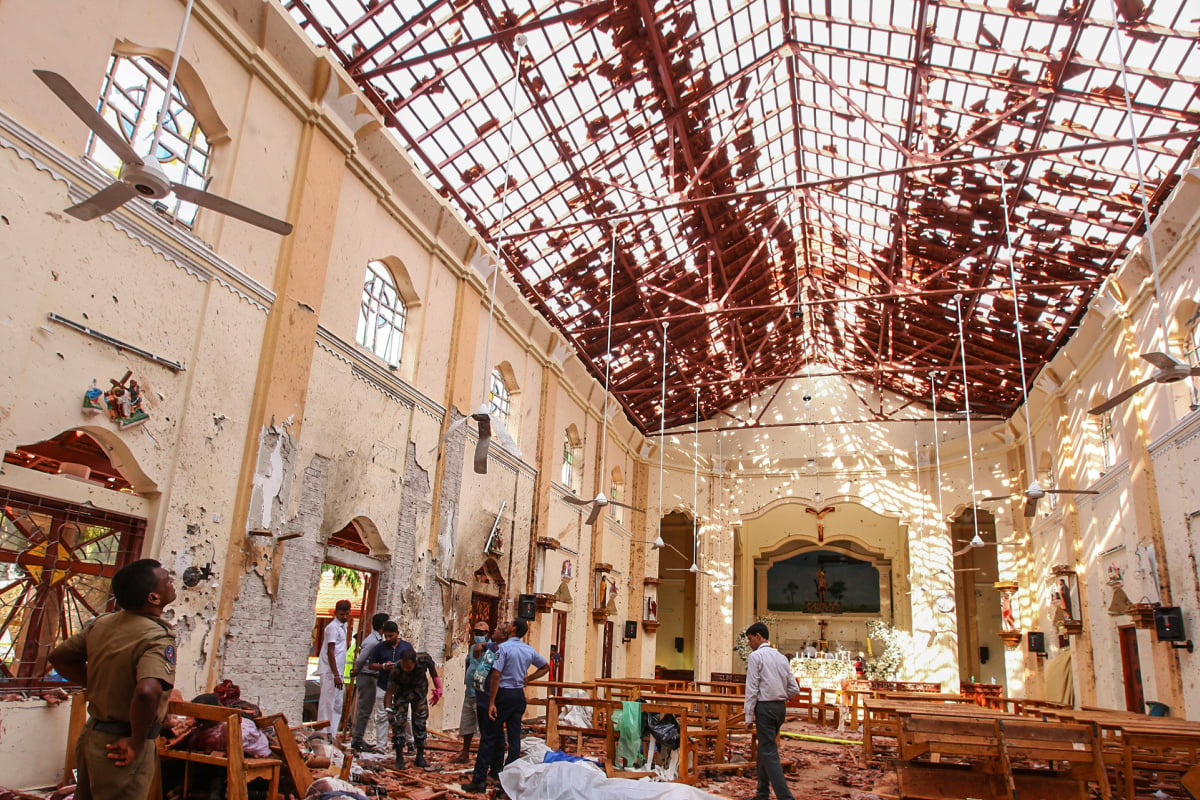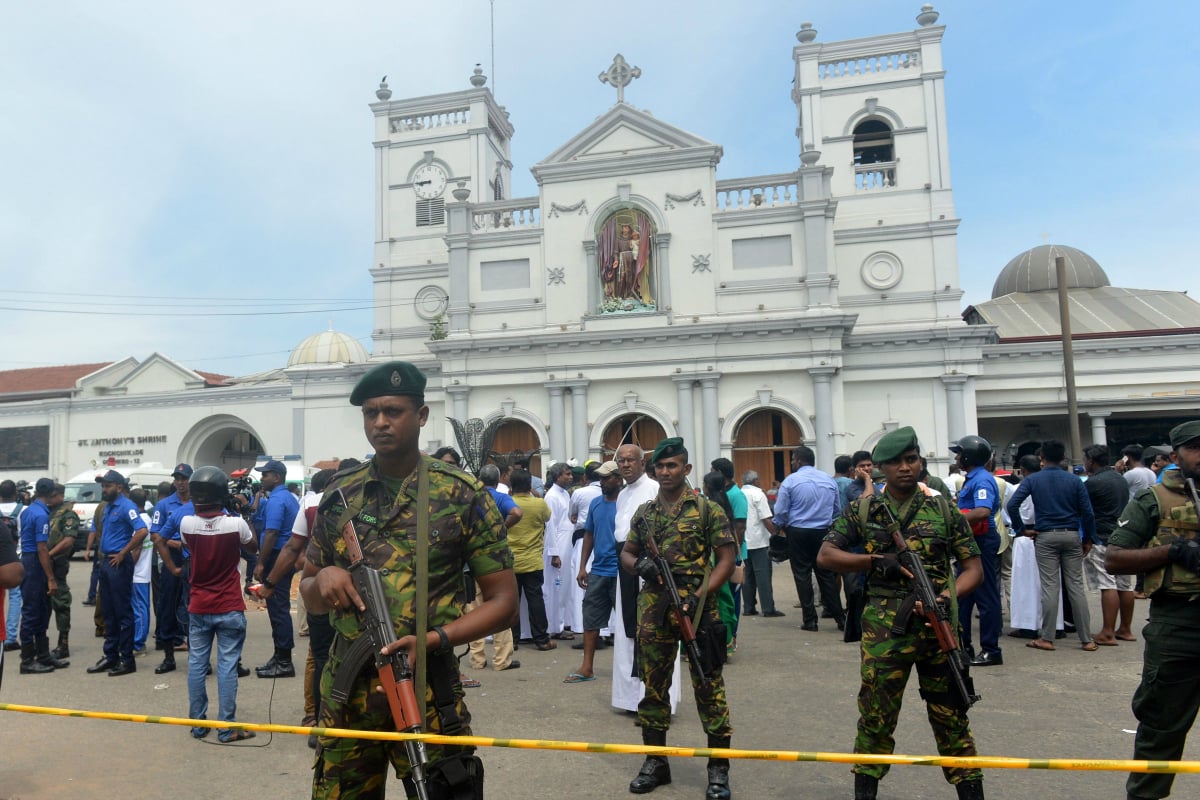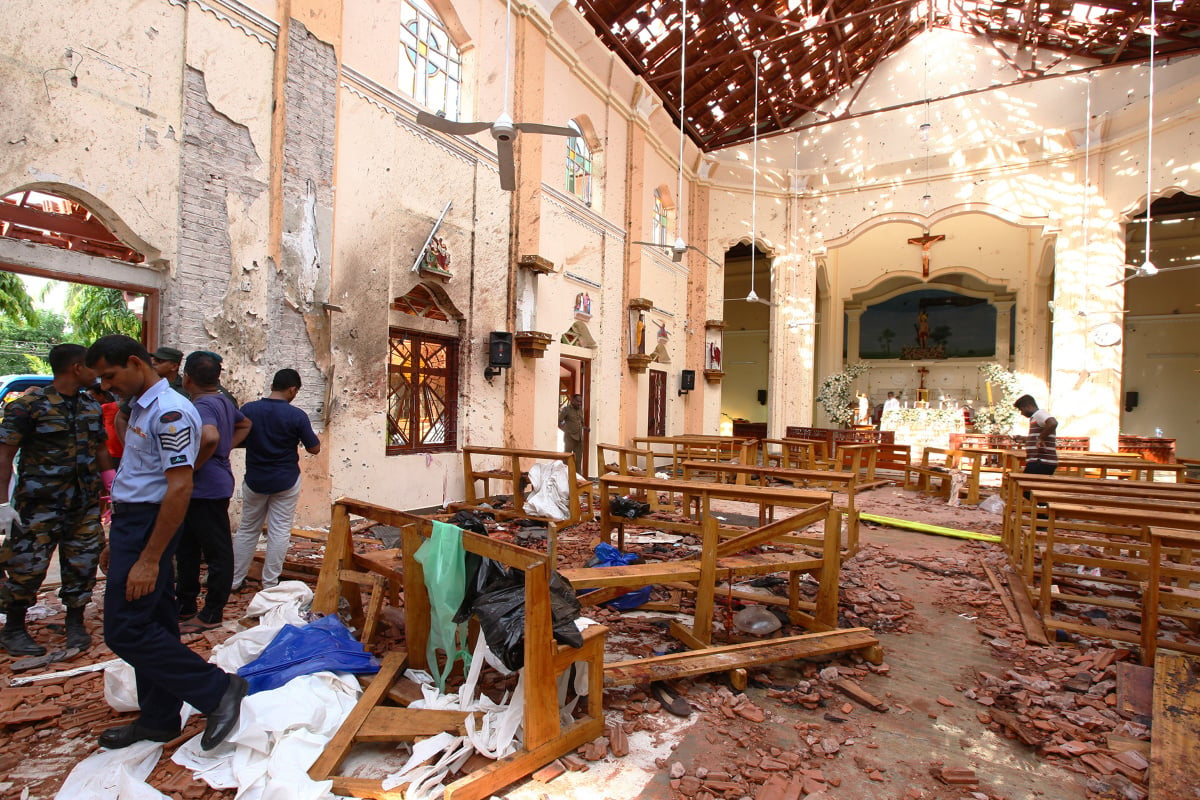
-With AAP.
A rash of bombings at churches and hotels on Easter Sunday in Sri Lanka has caused blood shed on a scale not seen since the country’s 26-year civil war, which ended in 2009.
At least 290 people, mostly Sri Lankans but also including dozens of foreign citizens, have been killed in the eight explosions with this number set to rise as the number of people injured sits at 500.
A ninth bomb was discovered at Sri Lanka’s main international airport, prompting a lockdown.
A large PVC pipe packed with explosives was found on the way to Bandaranaike International Airport and was diffused by explosives experts, an air force spokesperson told Bloomberg.
Seven people have been arrested and three police officers were killed during a raid on a house in Colombo on Sunday as the death toll rose past 200, police and local media said.
The eight explosions, including suicide bomb attacks, led to an immediate clampdown, with the government declaring a curfew and blocking access to major social media and messaging sites, including Facebook and WhatsApp.


